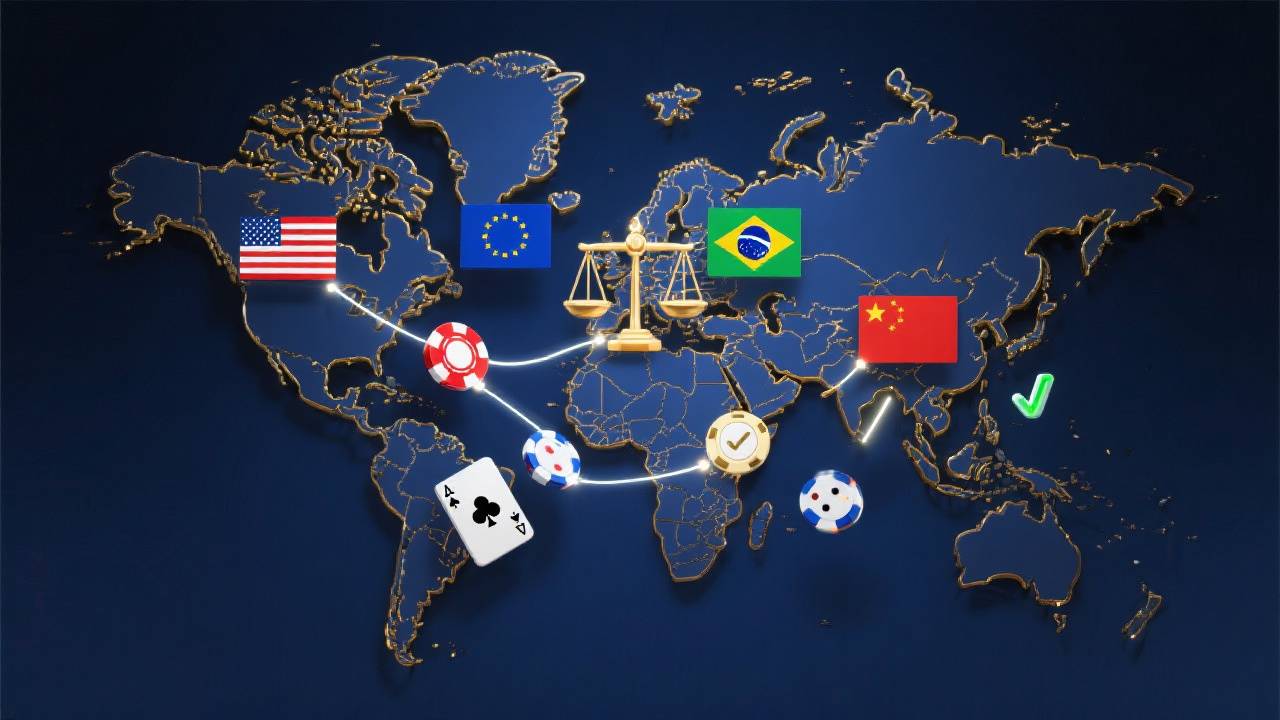
The growth of online casinos has reshaped the global gambling industry, bringing with it both opportunities and regulatory challenges. As more countries grapple with how to manage digital betting platforms, laws and regulations
continue to evolve, often with wide variation from one jurisdiction to another. While the aim is typically to protect players, ensure fair play, and prevent illegal activity, the ways in which governments regulate online casinos differ significantly across the globe. Platforms like xon casino operate within this complex legal landscape, adapting to meet compliance standards in multiple regions.
Why Regulation Matters
Regulation is essential to protect players from fraud, ensure game fairness, and uphold data privacy. It also helps prevent money laundering and encourages responsible gambling. For operators, being licensed in a trusted jurisdiction boosts credibility and market access.
European Union: A Complex Yet Active Market
Europe is one of the most regulated regions for online gambling. The UK Gambling Commission sets high standards for licensing and player protection. Germany recently introduced a national treaty with strict rules like deposit limits and identity checks. Meanwhile, countries like Malta, Sweden, and Denmark offer regulated but varied frameworks. This diversity adds complexity for operators expanding across the EU.
North America: Rapid Change, Varied Approaches
The United States presents a unique challenge due to its state-by-state regulatory model. While Nevada, New Jersey, and Pennsylvania have embraced legalized online casinos, other states remain hesitant or outright prohibit them. Operators must navigate an intricate web of state laws, technology requirements, and compliance rules. Regulatory bodies such as the New Jersey Division of Gaming Enforcement (DGE) set high standards for fair gaming and player safeguards.
In Canada, regulation is handled at the provincial level. Ontario, for example, has launched its regulated iGaming market, requiring operators to obtain approval from the Alcohol and Gaming Commission of Ontario (AGCO). Other provinces rely on government-run platforms, creating inconsistencies across the nation.
Asia: Growth Meets Restriction
Asia is home to some of the fastest-growing markets for online gambling, but also some of the strictest laws. In China, online gambling is illegal, and the government actively cracks down on offshore operators. Despite this, a black market persists, often facilitated by cryptocurrency and underground networks.
In contrast, the Philippines has become a hub for licensed operators through its Philippine Amusement and Gaming Corporation (PAGCOR). Although targeted mostly at overseas players, this model demonstrates how a government can support regulated online casinos while maintaining domestic restrictions.
India operates in a legal gray area. Some states allow online gambling while others do not, and there is no uniform federal law to guide enforcement. This ambiguity creates challenges for both operators and consumers in determining legal status and protections.
Australia and New Zealand: Stringent Controls
In Australia, the Interactive Gambling Act prohibits most forms of online casinos for domestic users. However, sports betting and lottery services are permitted under strict conditions. Offshore operators targeting Australian players may be blacklisted by the Australian Communications and Media Authority (ACMA). New Zealand similarly restricts online gambling. The only legal provider is the government-run Lotto NZ and the TAB, though residents are not prohibited from using offshore sites. This has sparked discussions about potential reform to better regulate and tax digital gambling within the country.
Common Compliance Requirements
Despite regional differences, there are some universal compliance trends in regulating online casinos:
- Licensing: Operators must obtain a license from a recognized authority such as the UKGC, MGA (Malta Gaming Authority), or local jurisdictions.
- Know Your Customer (KYC): Operators are required to verify players’ identities to prevent fraud, underage gambling, and money laundering.
- Responsible Gambling Tools: Many regulators mandate features like deposit limits, time-outs, and self-exclusion options.
- Fair Play Certification: Games must be tested by independent bodies to ensure they offer fair odds and are not manipulated.
- Data Protection: Compliance with data privacy laws, such as GDPR in Europe, is essential for legal operation.
Challenges for Regulators and Operators
The biggest challenge regulators face is keeping pace with technology. As new gambling formats like live dealer games, virtual reality casinos, and crypto casinos emerge, existing laws may become outdated or insufficient. Additionally, cross-border enforcement remains a major hurdle. Players can easily access offshore sites that may not follow local laws, undermining national regulatory goals.
For operators, the complexity of multi-jurisdictional compliance increases costs and slows down market entry. Navigating various tax structures, reporting systems, and legal standards requires specialized legal and regulatory teams.
The Future of Online Casino Regulation
Looking ahead, several trends are likely to shape the future regulatory landscape of online casinos:
- Harmonization of Rules: There’s growing interest in developing international guidelines to streamline licensing and compliance processes.
- Cryptocurrency Oversight: As more casinos accept crypto payments, regulators will need to address the associated anonymity and security concerns.
- AI and Automation in Compliance: Regulators and operators are beginning to use AI for fraud detection, behavior tracking, and automated reporting.
- Greater Focus on Player Protection: Expect stronger laws around advertising transparency, youth prevention, and problem gambling support.
Online casinos are a booming part of the global digital economy, but their regulation remains a patchwork of laws, challenges, and innovations. Whether through rigorous licensing or evolving consumer protections, the world’s approach to regulating online gambling is maturing — albeit unevenly. As the industry grows, collaboration between governments, platforms, and players will be key to creating a safer and more transparent environment.
